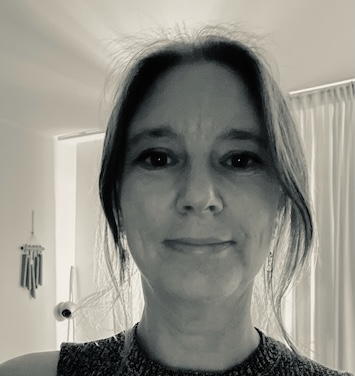“I want to code again. I want to do hands-on analytics work in a data/dev team.”
About 5 years ago, I started to talk like this with friends.
At that point in life, a single parent with two kids and all, there wasn’t really any space to follow up on that idea. Though I more often was responsible for data analytics and BI products, and working closer together with analysts and data scientists.
One hot summer day I suddenly found myself scripting some Python code in a Jupyter notebook with Pandas, to explore some traffic data in our product. I had asked one of the data scientists on the team what he was working with when he demo:ed the result of a traffic measurement analysis . “That looks interesting, what is it?” I asked. “Jupyter Notebook”, he replied. “Would you like to help me set it up when we have a bit of time? So I can try it myself.” I asked. Thank you Johan!
It was that easy. I just had to ask.
Writing this post, I found my first simple notebook and lines of Python. My version of “Hello world” :-)

In parallel with my position as a product owner, I signed up for an online program in foundational Data Science. By recommendation from a data scientist in my team. Not surprisingly, I found I had to repeat some math first. So I started to re-study the basics of calculus on the really nice Swedish Math site matteboken.se and some YouTube classes performed by people who know how to teach math. Then I started to work on the course.
At this time, I also started to say yes to some opportunities at our team days at Agical (my consultant company) to learn some web development again. We needed more people able to update the web site, so I learned the basics of the Hugo site generator by sitting next to some fantastic devs now and then. (@pappapez, @johlrogge, thank you!). Learning by osmosis really does work! Before I knew it I had committed a small update to our website.
My first advice to any of you reading this, who also caught this bug of changing direction:
Talk about your learning plans with friends, and at work. Talking about a wish is a powerful spell, taking you closer to make it come true.
Give yourself some space. No one else will give it to you. For instance: it is often possible to reduce full time work to maybe 80% of your normal job. There’s almost always something that can be cut down on, to get going.
Look for opportunities in your normal job. Where can you practice a bit, or work closer together with the people who have the job you want? In IT, It is commonly easy and appreciated to cross borders. If you just dare to ask.
After studying at least a half day a week for a while, I wanted to practice, for real. With a real product. I will share about that in the next post within a week or so. Where I will tell you about my internship at Nepa, how I got it and some more tips on how to direct yourself on the path of learning.
Part 2 - A self directing internship - and how I learn to code again
---
YouTube Math classes and other resources
Some inspiring teachers and resources I found during my Math repetitions:
Khan Academy’s Math classes are easy to follow
Wolfram Alpha - formulas and calculate stuff in UI
This guy is just the best. Here he explains derivative function for Mattecentrum. (Swedish) https://www.youtube.com/watch?v=onghSMeRC-g
Formelsamlingen.se - a (Swedish) collection of formulas
Mikael Strömberg - another calm and pedagogical math teacher. With a nice Östgötsk dialect :-)
Monica Kernwall - another one (Swedish) who explain things like distributions in a pedagogical way.
Robin Persson - a calculus teacher in Swedish.
Scott Milan is also someone who knows how to explain Math, according to me.
Data Science Learning Resources - that sticks
There are tons and tons of Data Science and analytics material out there. Here are some I found better and more pedagogical, than others.
Statology - Tutorials and knowledge base
Towards Data Science - many good examples and articles. Here about over- and underfitting models.
Machine Learning Mastery - tutorials and examples. Here about predictions with Keras.
Data School - examples and terminology. Here about confusion matrix.
Kaggle - of course. Tutorials and more. Here about churn prediction.
Statistics How To - reference book. Here about CDF.

